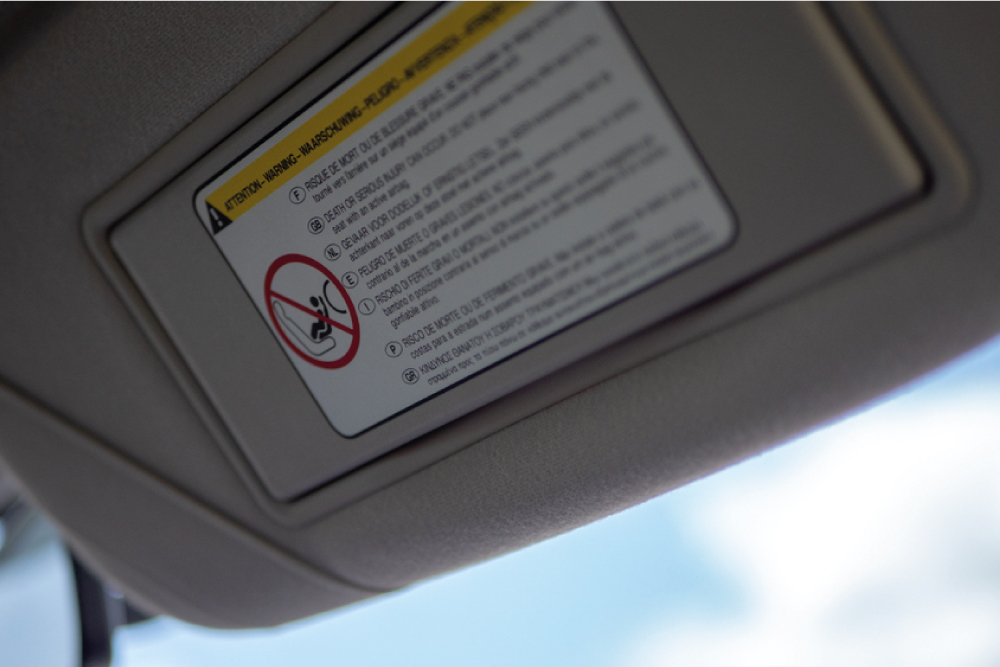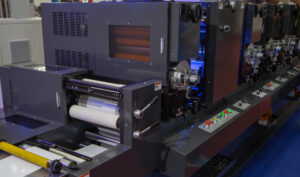In recent years, the automotive industry has established itself as one of the main drivers of economic development in Mexico. Additionally, on a global scale, it is one of the most competitive and highly regulated industries. For this reason, automotive labeling must adhere to and comply with all necessary guidelines.
Automotive industry labels not only ensure compliance with current regulations but also facilitate traceability, inventory management, and the provision of essential information for both manufacturers and consumers. Below, we outline the features, applications, and types of labels that enable efficiency and safety in the automotive sector.
Features of Automotive Labeling
In the automotive sector, labeling must meet strict quality standards to ensure durability and functionality. Each label must perform reliably in demanding environments so that essential information remains available at all times. Some of the basic features of automotive labeling include:
- Durability: Automotive industry labels withstand extreme conditions such as high temperatures, humidity, and exposure to chemicals.
- Legibility: The information on the labels must remain clear and readable throughout the lifecycle of the vehicle or component.
- Versatility: Automotive labels can be made from a variety of materials, such as vinyl, polyester, or anodized aluminum, to adapt to different surfaces and applications.
- Strong Adhesion: The adhesive on automotive labels ensures reliable attachment, even on textured plastics or treated metals.
Functions of Automotive Labeling
Automotive labels serve a variety of key purposes, acting not just as informational elements but also as tools for maintaining operational efficiency, regulatory compliance, and customer satisfaction. Some of their main functions include:
- Regulatory Compliance: Ensuring that each component meets quality and safety standards, including region-specific regulations.
- Traceability and Inventory Management: Identifying each part throughout the production process, enabling efficient quality control in the supply chain and facilitating the organization and tracking of components.
- Consumer Information: Providing technical data, specifications, energy consumption details, and safety warnings.
- Authenticity Certification: Validating parts and components with holograms, barcodes, QR codes, and other security features to certify the product’s origin, prevent counterfeit parts, and reinforce customer trust.
- Problem Detection: Recording and tracking essential information in case of defects in specific components, reducing diagnosis times and implementing solutions more effectively.
Types of Labels
To meet the diverse needs of the industry, automotive labeling must adapt to various applications. As a result, not all labels are the same; their design and materials vary depending on their purpose:
- Engine Labels: These labels endure high temperatures, humidity, and chemical exposure while identifying key engine components. Their durability ensures the legibility of information such as serial numbers and maintenance data, even in extreme conditions.
- Battery Labels: These labels include specifications, capacity, voltage, and safety measures. They resist corrosive agents and temperature variations to ensure functionality throughout the battery’s lifespan.
- Shock Absorber Labels: These provide details such as model, capacity, and installation recommendations. They withstand impacts, abrasion, and humid environments.
- Airbag Labels: These contain critical information on safety regulations, user warnings, and manufacturing details. They must be highly visible to ensure their protective function.
- Tire Labels: These provide data on size, pressure, resistance, and manufacturing date. They are made with materials that resist friction, humidity, and dirt.
In a sector as regulated and precision-dependent as the automotive industry, an efficient labeling system is a strategic tool. It ensures product quality, reduces errors in production and logistics processes, and builds consumer trust by meeting their expectations for safety and transparency.
Taylor’s Automotive Labeling Solutions
At Taylor, we understand the importance of automotive labeling as a fundamental part of optimizing processes, meeting standards, and enhancing customer experience. With customized printing solutions and high-quality materials, we are a strategic and comprehensive partner for the automotive sector. We specialize in the production of labels as well as manuals and technical documentation for the industry, holding IATF 16949 certification and adhering to industry standards such as UL, ANSI, and CSA. Contact us to discover how our printing solutions can transform your industrial labels.



